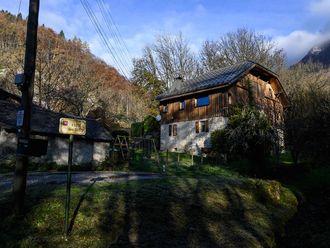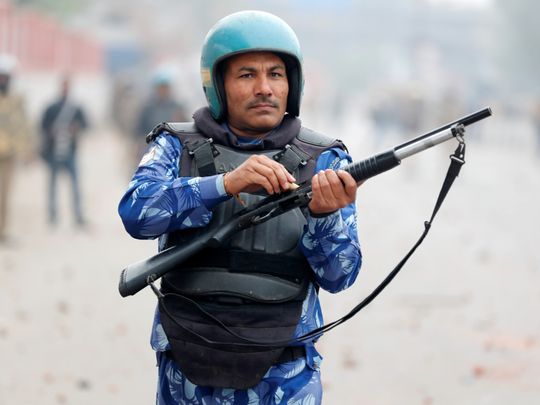
New Delhi
"The police made all 15 of us kneel and started beating us. They used lots of abusive words. One of them removed my prescription glasses, threw (them) on the ground, broke them and told me to look down," said Hanjala Mojibi, an English major at Jamia Millia Islamia University at a news conference, breaking down in tears.
Indian student protests that turned into violent clashes with police galvanized opposition nationwide on Tuesday to a new law that provides a path to citizenship for non-Muslim migrants who entered the country illegally from several neighboring countries.
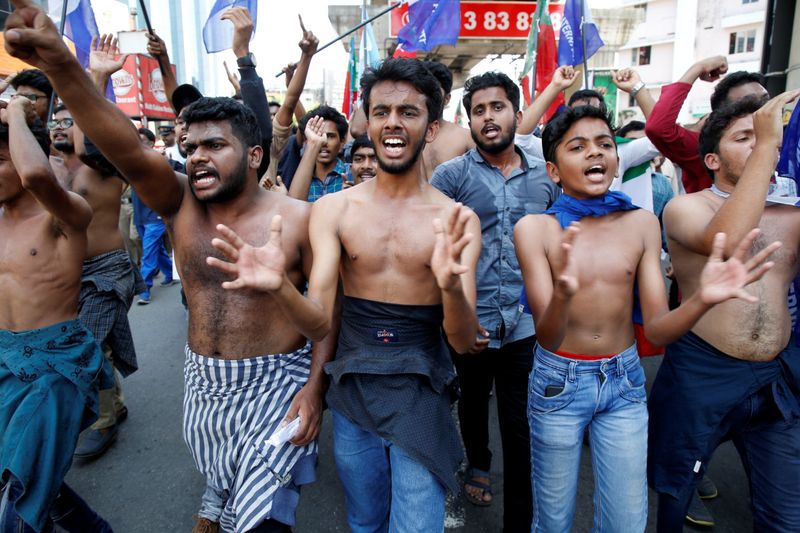
A march by students from New Delhi's Jamia Millia Islamia University descended into chaos Sunday when demonstrators set three buses on fire. Police responded with rubber bullets and tear gas. Videos showed officers running after unarmed protesters and beating them with wooden sticks.
Mojibi said that when he and others saw police enter the campus, they walked toward them with their hands up to indicate their protest was nonviolent.
What is the issue?
Citizenship Amendment Act is a newly passed law that applies to Hindus, Christians and other religious minorities who are in India illegally from Muslim-majority Bangladesh, Pakistan and Afghanistan. They can apply for citizenship under a religious persecution clause.
The law, however, doesn't include Muslim refugees or migrants - in what critics are calling a clear indication of the changing politics in secular India. India has a Hindu population but is also home to 200 million Muslims and other minorities.
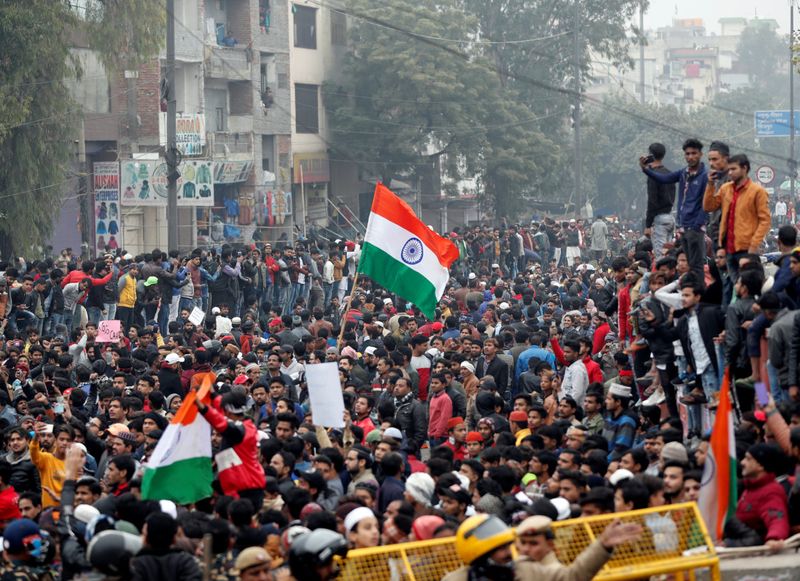
This amendment of the Citizenship Act, 1955 which requires the applicant (regardless of religion or country of origin) to have resided in India for 11 of the previous 14 years. The amendment passed this year relaxes this requirement from 11 years to six years, but for Hindus, Sikhs, Buddhists, Jains, Parsis, and Christians from the three nations.
Some of the protesters view the law as inherently discriminatory, while others - particularly in India's northeast - fear it will accelerate demographic and linguistic change.
Sunday violence and accusations against police
Protests in the capital took a violent turn on Sunday as public buses were burnt and civilians injured around the Jamia Millia Islamic campus. The protests by students of the university turned violent when police allegedly barged into the campus.
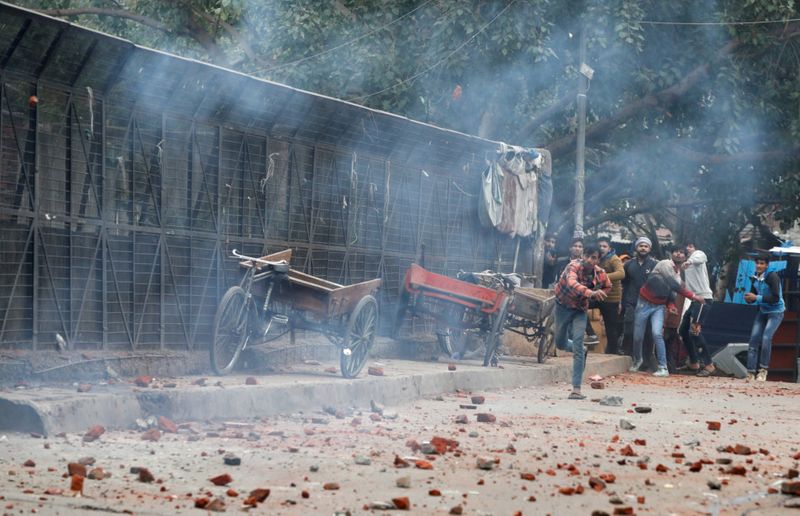
Late on Sunday, videos and photos emerged on social media channels accusing police of forcibly entering the college library and even student hostels where they have been accused of firing tear gas pellets and beating students with wooden sticks or lathis.
On Monday, the students of Jamia formed a human chain outside the campus in protest against “police brutality”. Delhi University (DU) students also clashed with the police accusing them of using “excessive force” to control protests in Jamia on Sunday.
Addressing a press conference, Jamia Millia Islamia University Vice-Chancellor (VC) Najma Akhtar demanded a high-level inquiry into the crackdown on university students.
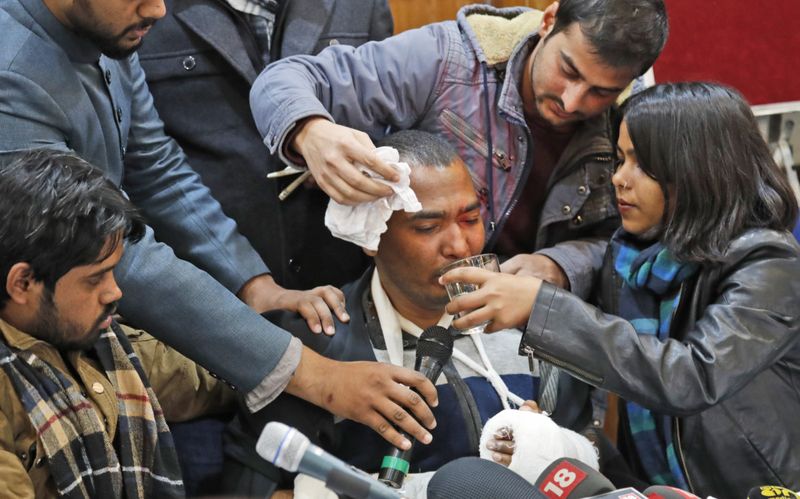
Mujeeb Ahmad, a 21-year-old Arabic major, returned to campus Monday to join the sit-in and retrieve the book bag he lost fleeing the library, where he had been studying for exams.
"We thought we were safe in the library,'' he said, adding that he and others had locked the library doors from the inside. Policemen broke them down, and at least one officer fired tear gas, he said, holding up an empty canister he said he picked up from the library floor.
What is the government saying?
The Bharatiya Janata Party (BJP) with Narendra Modi at its helm has been pushing for the legislation for years. The bill was presented by Modi's government in 2016 but that failed to garner the required support in the parliament houses.
However, this time around, the act was passed.
On Monday, following the violence that ensued in Delhi, Narendra Modi tweeted reassuring people in the country that the act would not affect any citizens. He added, "This is the time to maintain peace, unity and brotherhood. It is my appeal to everyone to stay away from any sort of rumour mongering and falsehoods."
Speaking at a rally on Sunday, Modi said the protesters who were setting fires "can be identified by their clothes." Critics called the statement a political dog whistle to refer to Muslims, who often wear distinctive garb.
Amit Shah, Modi's powerful second-in-command, has repeatedly stated that the citizenship law will be followed by a nationwide registry in which all Indians will have to provide documents proving their citizenship, ostensibly to identify migrants who entered the country illegally.
Not just this Act
This act closely follows two other controversial projects undertaken by the Modi government in recent times. One being the revocation of Article 370 which granted semi-autonomy to India's only Muslim-majority state, Kashmir.
The other large-scale operation conducted during this government's reign is the enforcement of the National Register of Citizens (NRC) list in Assam with Amit Shah, Union Minister for Home Affairs, proposing a possible extension of the list to the entire country.
The purpose of the NRC update in the state of Assam has been to identify Indian citizens - who are presently residents of the state - so that illegal migrants who entered the state after midnight on 24 March 1971 can be identified.

The NRC had always been a part of India's efforts to curb illegal migration from erstwhile East Pakistan, now Bangladesh in the years preceding 1971. However, the logistics of updating the list have delayed a publication until now.
The final NRC list was published in August 2019, leaving out 1,906,657 people who had applied for inclusion. While theyc an appeal the non-inclusion, the fate of those who would not be able to get his or her name entered in the register is now a matter under judicial and legislative consideration and more or less uncertain.
Also read
- India citizenship law protests: Dozens injured as activists clash with Delhi police
- Citizenship (Amendment) Act protests: Police attempted to douse fire by using borrowed water bottles
- Jamia Millia staff shares her experience protecting students during violence at university
- India’s Citizenship Bill discriminatory in nature
- UAE issues travel advisory to India
These people stand at risk of being deported to Bangladesh if unable to prove the legality of their migration. Bangladesh has repeatedly said that it would not accept anyone India determines to be a foreigner, but on Sunday, Foreign Minister A.K. Abdul Momen said it has asked the Modi government for details on Bangladeshis living illegally in India so that they could be repatriated.
There are also allegations that a large number of Bengali Hindus, genuine Indian citizens, have been left out of the list - their spots being taken by illegal migrants.
State governments, politicians protest against CAA
Several state governments have called for peaceful protests against the act.
In Kerala, both the ruling government and opposition are on the same page as Chief Minister Pinarayi Vijayan and LoP (leader of opposition) Ramesh Chennithala held a joint protest against the amended citizenship law in the Assembly on Monday.
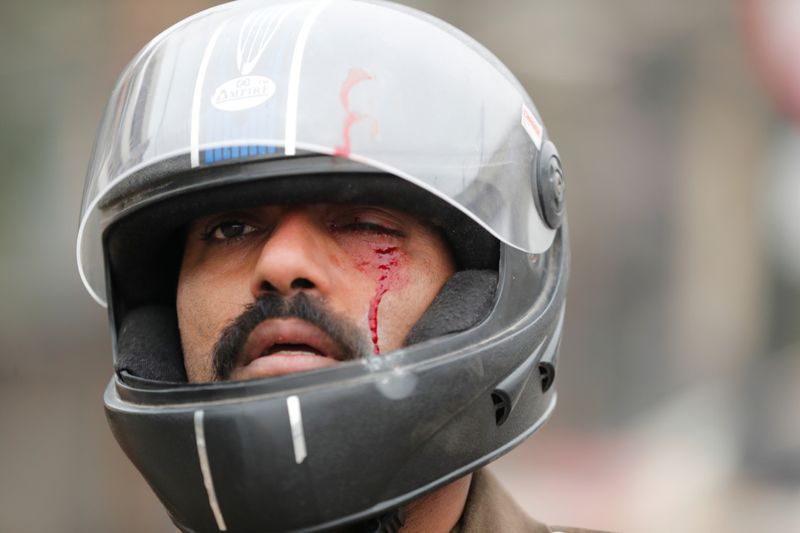
In Chennai, Dravida Munnetra Kazhagam (DMK) lawmaker Kanimozhi on Tuesday protested against the amended citizenship law and raised slogans against the Central and state government.
People gathered in huge numbers and chanted, "We oppose, we oppose, we oppose Citizenship (Amendment) Act (CAA)". Clad in a black saree, Kanimozhi stood on the dais to show her disapproval with the newly enacted law.
An association of Muslim advocates on Monday approached the Supreme Court challenging the Citizenship (Amendment) Act, 2019, and seeking to declare the new law as "unconstitutional."
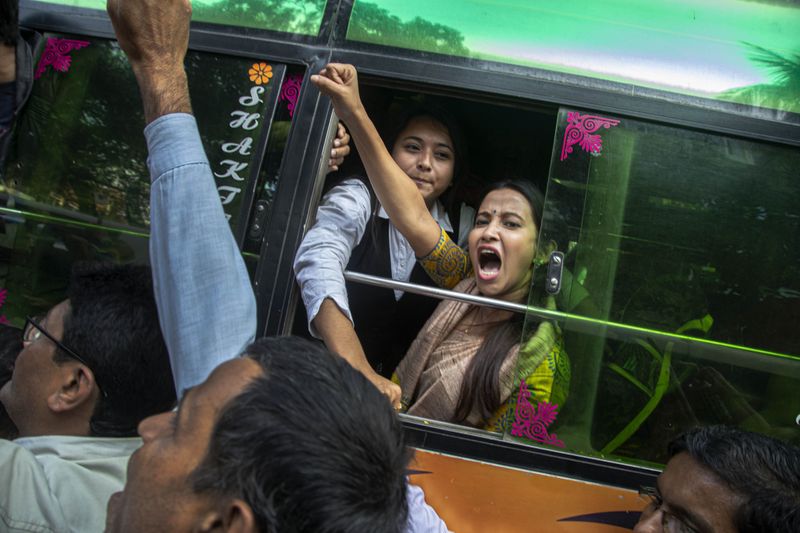
"The Act violates Articles 14, 21 and 25 of the Constitution, as well as the Constitution's basic structure," said the Muslim Advocates Association (MAA) in its plea.
West Bengal Chief Minister, Mamata Banerjee, had on Monday spearheaded a protest march in Kolkata against the Citizenship (Amendment) Act, 2019, and the NRC.
Banerjee has said that she will not allow the citizenship law and the NRC to be implemented in West Bengal.
Maharashtra Chief Minister Uddhav Thackeray on Monday said that the Citizenship (Amendment) Act, 2019 has "no clarity" in it.
"The questions we asked in Lok Sabha on Citizenship (Amendment) Bill, 2019 were not answered. There is no clarity on the Citizenship Act," Shiv Sena chief Thackeray said at an event here.
About 2,000 people including students and families with young children gathered at New Delhi's iconic India Gate memorial to protest the Citizenship Amendment Act and reports of students demonstrating against the law who were beaten by police at several university campuses.
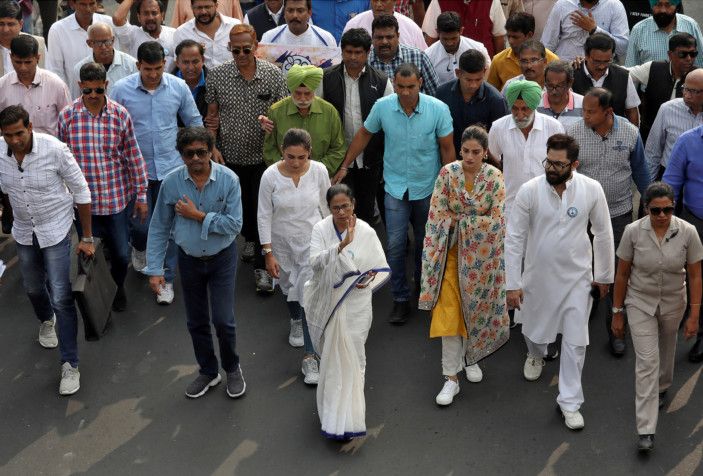
Priyanka Gandhi, a leader in the opposition Congress party, participated at a sit-in at India Gate for two hours. Police stood on the sidelines of the demonstration.
Assam is burning
The law's passage has triggered protests across India, but Assam, the center of a decades-old movement against illegal immigrants, has seen the highest toll.
Assam police officials say officers have fatally shot five protesters in the state capital of Guwahati while attempting to restore order to a city that has been engulfed in demonstrations since last week. About 1,500 people have been arrested for violence including arson and vandalism, police spokesman G.P. Singh said, adding that authorities were reviewing surveillance videos and anticipated making more arrests.
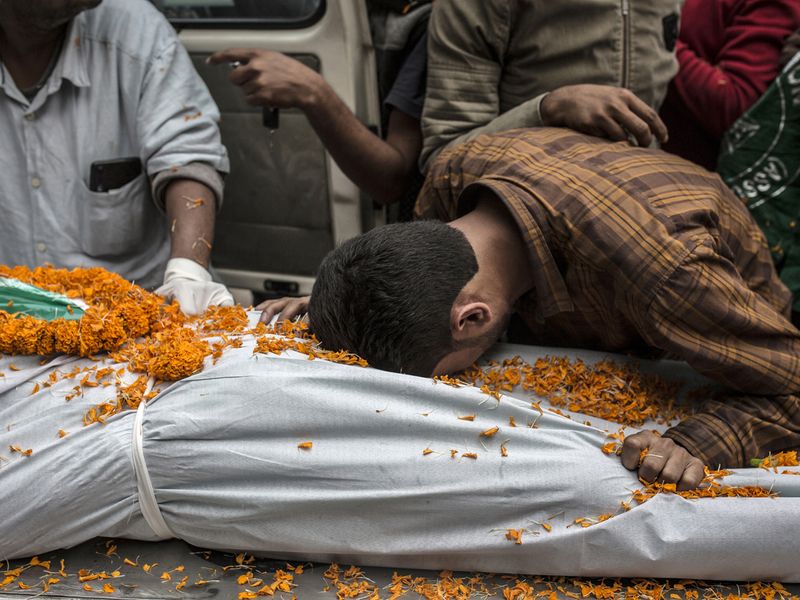
Schools remain closed through Dec. 22, the government has blocked internet service statewide and a curfew has been imposed from 9 p.m. to 6 a.m. Foreign journalists are not permitted to travel to India's northeastern region, including Assam, without a permit.
Municipal workers were clearing the city of burned tires and other debris on Monday and some businesses had reopened as the All Assam Students Union, which has spearheaded Assam's anti-immigration movement for decades, led a silent protest. The group and its followers fear an influx of migrants will dilute native Assamese culture and political sway.
The Citizenship Amendment Act could also provide protection and a fast track to naturalization for many of the Hindus left off Assam's NRC list, while explicitly leaving out Muslims.
"Our country is not just for Hindus," said Chanda Yadav, 20, a Hindi literature student who was participating in a sit-in Monday at Jamia Millia Islamia University. ``I feel it is my moral right to protest against something which divides us as a community.''
- Inputs from agencies






